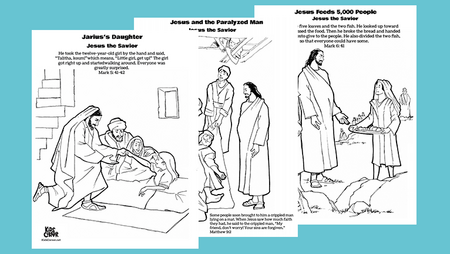
The Work of Reconciliation
Bible Verse
1 It is truly wonderful when the people of God live together in peace. Psalm 133:1
Every September, Canadians observe the National Day for Truth and Reconciliation to both remember the tragic legacy of residential schools in Canada and to encourage continued work toward reconciliation. Similarly, on the second Monday in October, the United States observes Indigenous Peoples' Day, a day to honor the histories, cultures, and contributions of Native American peoples. Both of these holidays are focused on the difficult work of reconciliation and are a good occasion to think about concrete ways we can answer God’s call to the ministry of reconciliation.
The book of Revelation paints an amazing picture of “every nation, tribe, people and language, standing before the throne and before the Lamb” (Revelation 7:9-12). It’s good that we don’t have to wait for glimpses of that day. Psalm 133
talks about the blessings of God’s people living together in unity.
Today, we can follow Jesus, who sat with people from other cultures like
the Roman centurion and the Samaritan woman at the well,
even though at the time it was not socially accepted to do so. Jesus
reached out and helped many of these people in need of healing,
reconciliation, and renewal.
Because of colonization and a history of racism and abuse, many First Nations/Native American people have become spiritually wounded in the brokenness of this world. In 2 Corinthians 5:11-21, God calls us to a spirit of reconciliation. This can be difficult when we don’t fully understand the culture of the Other. How do we encourage our children to live in unity with people of the First Nations/Native Americans? Here are some ways that you can lead your family in the work of reconciliation and God’s call for healing and renewal.
Talk About Reconciliation: Talk together about how your family can develop a respectful relationship between Indigenous and non-Indigenous people. How do we acknowledge all the ways people were harmed? What are some of the things we should say we are sorry for? How does this change the way we act, talk, and think about people that are different from us?
Call out racism, ignorance, and hate when you see them on the news or in person. Talk together about how to respond to ignorance with kindness and patience, because a lot of people just don’t know about important issues and history, like Indian Residential Schools.
Spend time learning about Indigenous culture. Explore the differences in cultures. There are 634 First Nation communities in Canada that represent fifty different nations, cultures, and languages. In the United States, there are 574 federally recognized tribes. While there are some broad-sweeping commonalities, every nation is unique in its own way.
Start by learning the names of the people groups who lived where your neighborhood is today. Know where the closest Indigenous community lives. Learn about land acknowledgement and why it's important.
For a deeper dive into First Nations, Metis, and Inuit resources, check out this Kids Corner blog to explore stories, histories, languages, and media.
Pray. Spend time praying for First Nations/Native American, Metis, and Inuit people of Turtle Island (an Indigenous name for North America). Pray for healing of the land and for all people to be reconciled to God and each other.
In prayer, try using the word Creator, because many First Nations recognize One God-Creator.
Pray this devotion prayer together: Creator God, thank you for making many kinds of people that have different ways of life. Please help us to celebrate our differences and help us to say sorry even when it is hard. Show us moments that we need to be kinder and gentler, so we can live in unity with those around us. Thank you, Jesus, Amen.
Want to do a deep dive? Check out Family Fire's article Reconciling Our Conflict with Reconciliation



